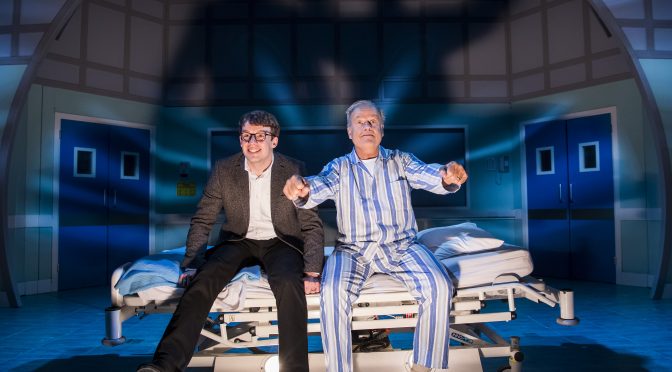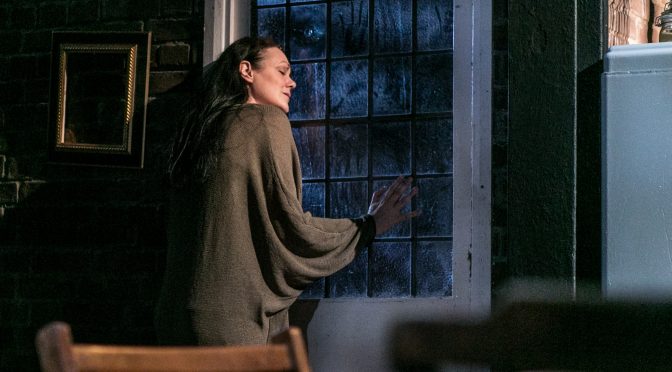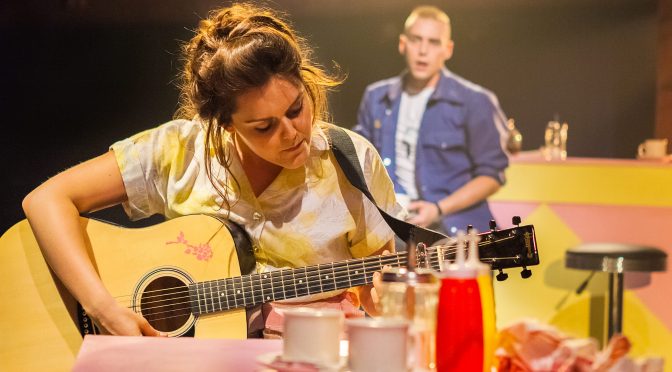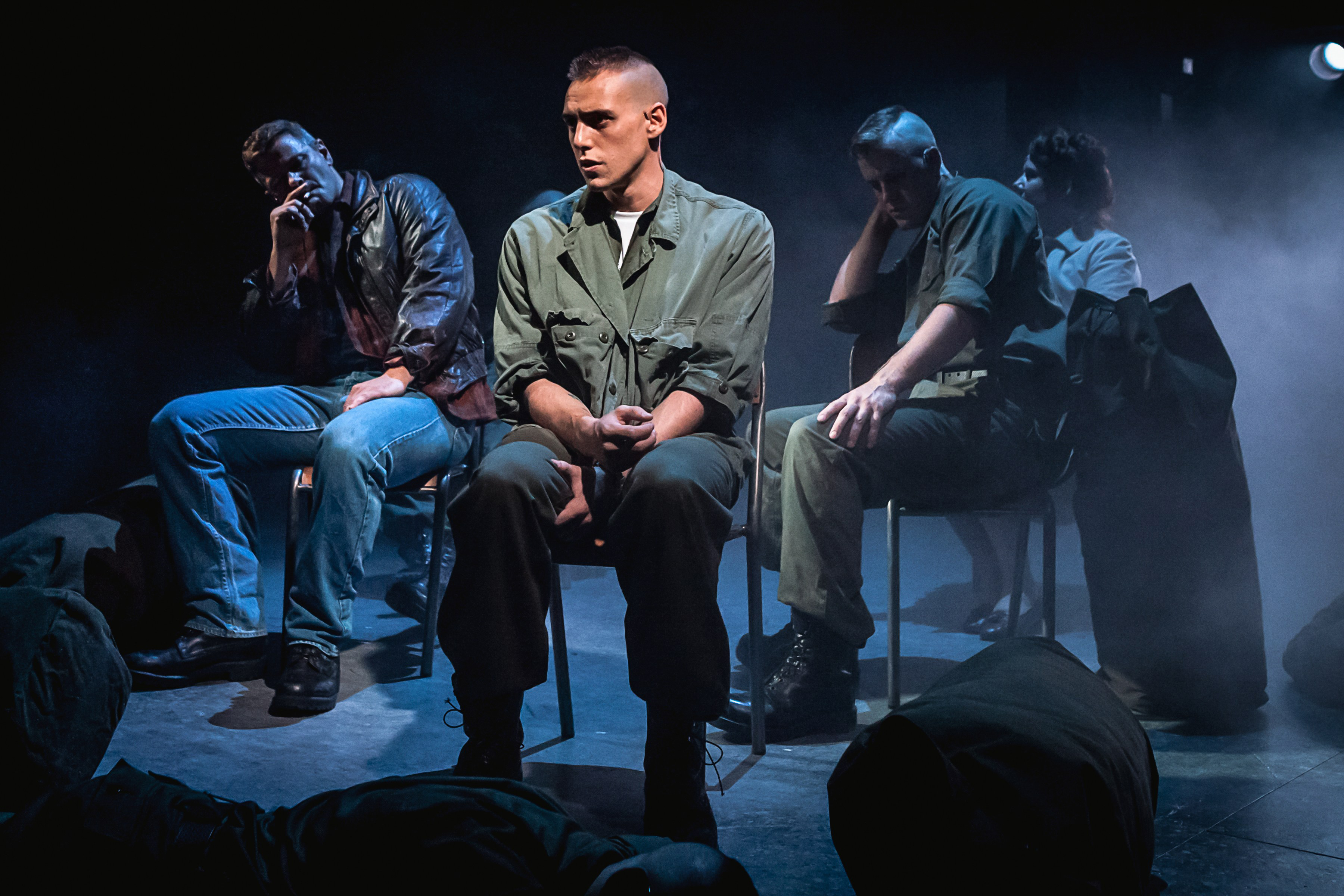For this musical version of Daniel Wallace’s novel, John August has adapted his own screenplay from Tim Burton’s film and produced a satisfyingly theatrical show. Big Fish fits into a genre of Americana started by Thornton Wilder’s This Town that celebrates everyday life with a magical touch. At times it is captivating.
Edward Bloom is the not-so-average Joe who is our hero and, as he approaches death, he recounts some wild and wonderful tales about his life. These stories have – somewhat inexplicably – alienated his fact-driven reporter son, Will. Their reconciliation makes the show a family drama of low stakes – and the journey the latter has to take to embrace his father’s optimism is too gentle to be compelling.
Kelsey Grammer takes the lead, ably abetted by Jamie Muscato who appears as Joe’s younger self, and delivers the star factor: he sells the character of a travelling salesman superbly and is a strong enough comedian to make a bad joke go a long way. Matthew Seadon-Young plays son Will, giving a dedicated performance with a strong voice, but his character doesn’t convince. It’s a problem shared by the roles of wives to both men – capably performed by Frances McNamee and Clare Burt – who are sketched with depressing brevity.
The music and lyrics by Andrew Lippa fail to excite – a collection of try-hard numbers that feel forced and end up forgettable. Yet as a chamber piece Big Fish has charm. It’s when we see an ambition to be big that the cracks show; there isn’t the power to deliver a big West End feel here. Tom Rogers’ design is a case in point – clever, even charming, but inventive rather than impressive.
With too much sentimentality – fathers and sons skimming stones on a river is always a bad sign – the death bed reconciliation ends up uncomfortably long. I had plenty of time to check, in case I was just cold and heartless, and there was barely a wet eye in the house. “Part epic tale, part fire sale” is a description of Bloom’s life that could have been a warning – mixing the show’s simplicity with attempts at grandeur fails too many times, and director Nigel Harman struggles to accommodate the piece’s inconsistencies.
Until 31 December 2018
Photo by Tristram Kenton




